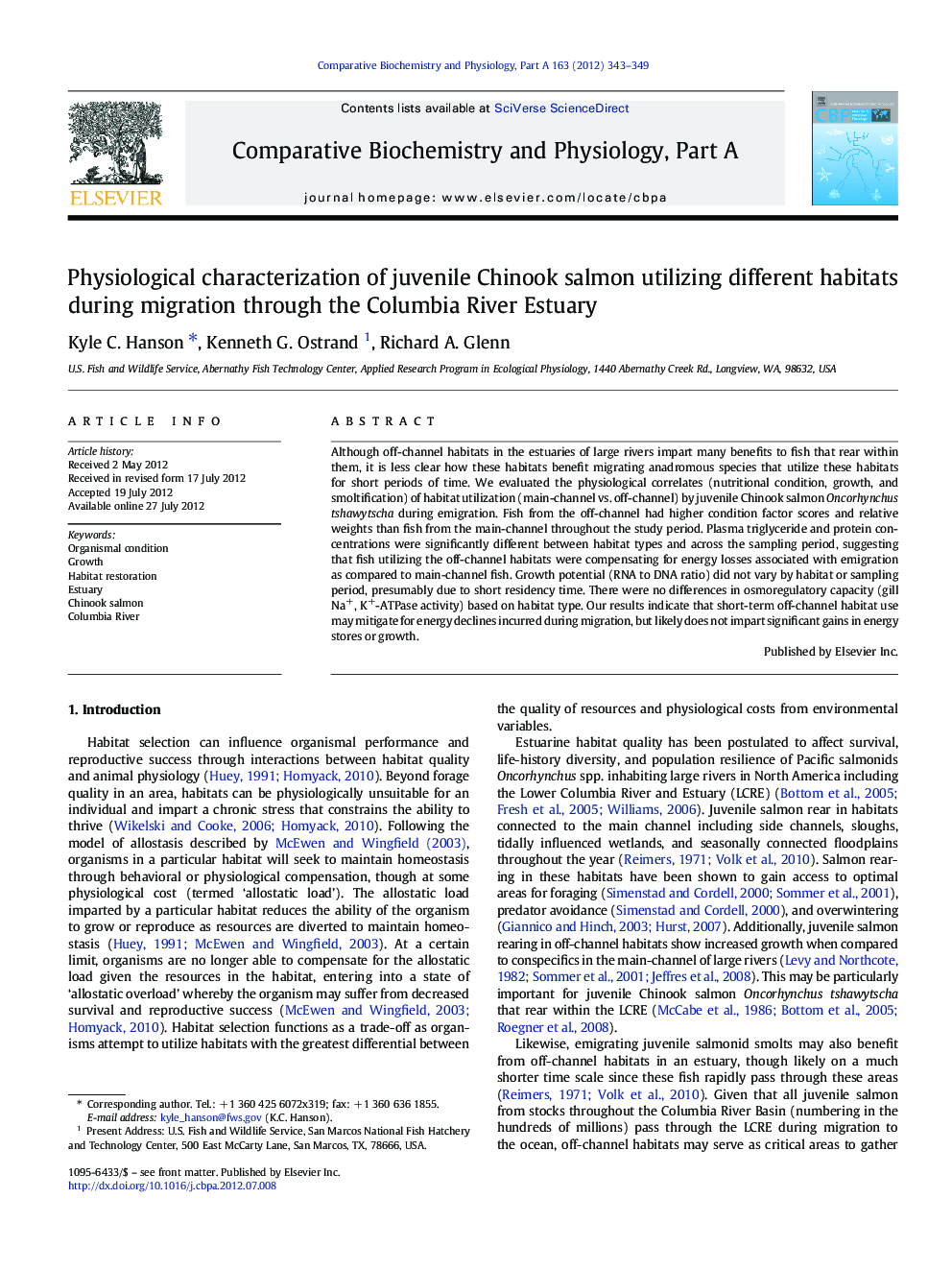| Article ID | Journal | Published Year | Pages | File Type |
|---|---|---|---|---|
| 8318709 | Comparative Biochemistry and Physiology Part A: Molecular & Integrative Physiology | 2012 | 7 Pages |
Abstract
Although off-channel habitats in the estuaries of large rivers impart many benefits to fish that rear within them, it is less clear how these habitats benefit migrating anadromous species that utilize these habitats for short periods of time. We evaluated the physiological correlates (nutritional condition, growth, and smoltification) of habitat utilization (main-channel vs. off-channel) by juvenile Chinook salmon Oncorhynchus tshawytscha during emigration. Fish from the off-channel had higher condition factor scores and relative weights than fish from the main-channel throughout the study period. Plasma triglyceride and protein concentrations were significantly different between habitat types and across the sampling period, suggesting that fish utilizing the off-channel habitats were compensating for energy losses associated with emigration as compared to main-channel fish. Growth potential (RNA to DNA ratio) did not vary by habitat or sampling period, presumably due to short residency time. There were no differences in osmoregulatory capacity (gill Na+, K+-ATPase activity) based on habitat type. Our results indicate that short-term off-channel habitat use may mitigate for energy declines incurred during migration, but likely does not impart significant gains in energy stores or growth.
Related Topics
Life Sciences
Biochemistry, Genetics and Molecular Biology
Biochemistry
Authors
Kyle C. Hanson, Kenneth G. Ostrand, Richard A. Glenn,
